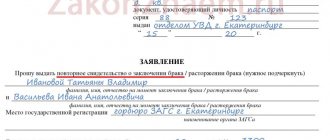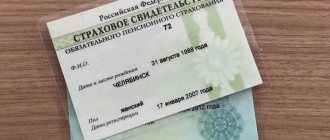Why do you need an APOSTILLE?
An apostille is needed so that your official document (for example, a Diploma of Education), issued on the territory of the Russian Federation, has the same legal force, say, in the United States, or vice versa, a US Diploma has legal force in Russia.
Without an Apostille, your document (for example, a diploma) will most likely be considered just a piece of paper. After all, in the United States they don’t know what a Russian diploma looks like, what form it is on, that’s why such a stamp as an APOSTILLE was invented, the presence of which on a document indicates that such a document exists, the persons who signed it exist or have the right to sign it.
The country of the USA is given here as an example for a reason, the fact is that it is included in the list of countries party to the Hague Convention dated October 05, 1961, and the Russian Federation, as the legal successor of the USSR, is included in this list, therefore the presence of an Apostille stamp on a document is equally recognized both the Russian Federation and the USA.
And if the UAE and the Russian Federation were involved here, then the Apostille would no longer be suitable, since the United Arab Emirates is not included in the Convention. Therefore, for the UAE, the Russian Federation Education Diploma would have to undergo full consular legalization, i.e. passing the document through three authorities: the Ministry of Foreign Affairs, the Ministry of Justice, and the UAE consulate.
In the case of an Apostille, a document passes through only one authority - the Ministry of Justice - which is why the Apostille is called a simplified form of legalization.
Apostille looks like this (3D model)
back to contents
What is an apostille and where are apostilled documents valid?
The apostille procedure was introduced. For its purpose, an apostille is a simplified form of recognition of documents from one country on the territory of another. In this case, both states must be parties to the convention.
Speaking about what an apostille of documents is, we can define it as a mark that replaces their consular legalization.
Externally, the mark is a square stamp. At the very top of the square is the inscription “Apostille”. In addition to the title, it contains the following information:
- the name of the state in which the act was certified;
- name and position of the authorized person who performed the authentication;
- the name of the authority that sealed the paper;
- the city in which the apostille was carried out;
- date and registration number of the apostille;
- name of the apostilizing government body;
- signature of the responsible person.
Some people mistakenly call this procedure “certify an apostille,” but in fact, it is not the apostille that needs to be certified, but the document.
Apostille is useful for those who submit documents to foreign government agencies for the purpose of:
- training;
- work;
- accommodation;
- marriage.
Persons who have resorted to the procedure once are interested in the question of how long a document with an apostille is valid. The stamp does not expire, but it is valid as long as the act itself has legal force.
Countries party to the Hague Convention
(as of December 13, 2010)
| Australia Austria Azerbaijan** Albania* Anguilla Andorra Antigua and Barbuda Argentina Armenia** Bahamas Barbados Belarus** Belize Belgium Bermuda Bulgaria** Bosnia and Herzegovina* Botswana Brazil British Antarctic Territory British Virgin Islands Brunei Durassalam Bailiff District of Guernsey Former Yugoslav Republic Macedonia, Vanuatu Hungary** Venezuela Germany Gibraltar Honduras Grenada Greece | Georgia** Denmark Jersey Jersey Bailiwick Guernsey Dominican Republic Cayman Islands Israel India Ireland Iceland Spain* Italy Latvia** Lesotho Liberia Lithuania** Liechtenstein Luxembourg Cape Verde Kazakhstan** Cyprus* China (Hong Kong and Macau only) Colombia Korea (Republic of) Kyrgyzstan** Mauritius Macedonia** Malawi Malta Morocco | Marshall Islands Mexico Moldova (Republic of)** Monaco Mongolia Montserrat Namibia Netherlands Niue Norway New Zealand Panama* Poland** Portugal Cook Islands Isle of Man Saint Helena Terke and Caicos Islands Peru Russia Romania** El Salvador Sao Tome and Principe Saint Helena (Netherlands) , Antilles) Samoa San Marino Swaziland Serbia** Seychelles | Saint Vincent and the Grenadines Saint Kitts and Nevis Saint Lucia Slovakia** Slovenia** United Kingdom of Great Britain and Northern Ireland USA Suriname Tonga Turkey Trinidad and Tobago Fiji Finland Falkland Islands France Montenegro** Czech Republic** Chile Croatia** Switzerland Sweden Ukraine ** Ecuador Estonia** South Africa Japan Seychelles Saint Vincent and the Grenadines |
back to contents
An apostille is not needed between the Russian Federation and the countries indicated (*) and (**) see above:
The competent authorities of Russia will not require an Apostille on documents issued in countries marked with (**) .
The competent authorities of Russia will not require an Apostille on documents issued in countries marked with (*) , provided that you provide an expert legal opinion confirming that such documents are legally valid.
Despite the fact that between the Russian Federation and the countries (*) there is an international agreement on legal assistance in civil, criminal and family matters that abolishes the Apostille, in some countries its presence is still required.
This is due to the fact that notaries, banks and government agencies do not know and are not required to know the internal laws of these countries. But, if you provide a legal opinion from a reputable law firm on the correct execution of your documents, then an Apostille will not be required from you.
Apostille on tax residence certificates for Kazakhstan
Because Kazakhstan and the Russian Federation have joined the agreement on the abolition of the legalization of documents (Minsk Convention), then affixing an Apostille on documents is not required.
However, the tax services of Kazakhstan, as a rule, insist on the presence of an Apostille for a residence certificate, explaining this by the fact that the Minsk Convention does not regulate tax legal relations.
This position is controversial and can only be resolved in court. Perhaps a precedent will soon be formed on this issue, and the procedure will be simplified.
back to contents
Where to put
You can apostille documents yourself or use the services of law firms.
When choosing the first method, you must fill out a special application in Russian, pay a fee, and then submit the SOB, a copy of your internal passport to the registry office. On the territory of the Russian Federation, both original documents and notarized copies can be apostilled. But it is worth paying attention to the fact that some difficulties may arise with a copy directly in a foreign country. If a citizen does not leave Russia forever, then it is better not to take out the original marriage certificate .
When turning to a law firm for help, a person makes his task easier: there is no need to stand in lines or run through authorities. But you will have to pay extra for the service. The cost depends on the specific law office and region of residence. For example, an apostille for a marriage certificate in Moscow costs an average of 4,000 rubles.
The state fee for apostilling a certificate currently amounts to 2,500 rubles. Since the amount is quite large, it is recommended to affix apostilles only in cases of extreme necessity.
As a rule, the duration of the entire procedure takes 3-5 days. The exact time depends on the workload of the government agency. Sometimes the process can take up to 2 weeks. If the SOB was received in a different registry office to which the application was submitted, or if the person used the State Services service, MFC, then the procedure will take up to 15 working days. For example, if a marriage certificate was issued in Moscow , and the apostille is affixed in St. Petersburg, then you will have to wait.
Apostille is not affixed to the following documents:
- a document executed by notaries of different regions: for example, a power of attorney is certified by a notary of the city of Moscow, and a notarized copy is certified by a notary of the Moscow region;
- documents emanating from a foreign legal entity, if it is not registered with the tax authority of the Russian Federation;
- documents signed by unauthorized officials, for example, a certificate of no criminal record signed by some police captain, but should be signed by the Chief or Deputy. head of the ZIC or FKU GIAC of the Ministry of Internal Affairs of Russia;
- original passports;
- original union cards;
- original work books;
- original military tickets;
- original identity cards;
- original pension books;
- original driver's licenses;
- original documents on belonging to classes and religions;
- copies of documents where letters and seals are illegible or there are corrections;
- medical certificates with triangular seals;
- documents directly related to commercial or customs operations (powers of attorney and invoices for the movement of goods across the border, contracts for the supply of goods and services, for the performance of work and settlements for them, etc.);
- documents of diplomatic and consular institutions;
back to contents
Apostille for residence certificate
A residence certificate is required for legal entities and individual entrepreneurs conducting international economic activities, as well as in some cases for individuals to prevent double taxation.
To submit to foreign authorities, the certificate must be issued by the MI of the Federal Tax Service of Russia for the data center - the Interregional Inspectorate of the Federal Tax Service for centralized data processing, located in Moscow.
An apostille certifies a notarized copy of a residence certificate. In Moscow, the procedure is carried out by the Ministry of Justice.
Apostille can be placed on the following documents:
- notarized documents (powers of attorney, consent, statements);
- any notarized copies of documents of the Russian Federation;
- notarized translation of documents;
- an extract from the Russian passport and foreign passport of the Russian Federation (not done by every notary);
- a notarized copy of the Russian passport and foreign passport of the Russian Federation (not done by every notary);
- a notarized copy of the driver's license;
- documents of legal entities of the Russian Federation certified by the state registration authority (charters, certificates of registration, tax registration, etc.);
- originals of education documents (Russian Federation and USSR only) (diplomas, certificates, certificates, etc.);
- originals of civil registry office documents (Russian Federation and USSR only) (birth certificates, marriage certificates, etc.);
- documents on work experience;
- court decisions with a mark on entry into legal force.
back to contents
What requires confirmation of documents outside of Russia?
If a citizen has received higher education in the Russian Federation, then not all countries can trust him, so affixing an apostille will be a prerequisite if he plans to work in his specialty abroad. All documents received by citizens in Russia will have legal force, including an apostille on a diploma, which will confirm that it was issued by a state accredited educational institution, and it is valid outside its borders.
But you must first translate the document into the language of the country where you intend to get a job. In addition, this is not an easy notarized translation, which not every notary can do, but only with approved special rights, who also has a personal apostille on the diploma from the relevant consulate of the state to which the translation will be made.
Draw your attention to! In order for legalization to take place, an apostille is required for both the original and copied documents, then this document can be considered as completely legal.
Many countries state requirements for obtaining a visa, getting a job or obtaining a place in an educational institution for the following types of officially confirmed documents.
Apostille affixed to the birth certificate. These are not the whims and nagging of visa centers; this requirement is due to a number of life factors:
- In some cases, an apostille on a birth certificate will be able to document parental rights to a child.
- If a grandmother or other close relative is sent abroad, then his parents must give permission to cross the border, and an apostille on the birth certificate will confirm their authority, and if the permission was not issued by an authorized person, they may not be allowed through the customs terminal, and the child will be sent back to my homeland.
- Again, if long-term residence is expected in the territory of a foreign state, then only the child’s legal representatives can take care of him, which is confirmed by the apostille affixed to the birth certificate.
- Well, if one of the legal parents decides to break the marriage bond while living in another state, then an apostille on the birth certificate will allow, in accordance with Russian laws, to collect the alimony due from him.
An authorized notary can certify and translate the certificate, and only in this case does it acquire legal force.
But is an apostille necessary if the inviting party of a foreign company agrees with the education you received and is ready to sign a long-term contract with you? Make no mistake, you will need an apostille for your diploma in many cases, if for one reason or another you have to change your place of work.
An apostilled document on the education received will be an official confirmation of its suitability in all countries participating in the Hague Convention, and it is better to do this on Russian territory in advance. Secondary confirmation will no longer be required.
We also remind you where to put an apostille - if you need to certify documents about your education, this can only be done at the department of education in your region. If you need apostilled documents on the birth of children or marriage, contact the civil registry office.
But the apostille on the certificate is placed in the same organization where the original was received, for example, in an insurance company after issuing a policy for those traveling abroad, which will confirm its identity with the laws of the host country. You can make a translation of the insurance policy at a notary office and put the appropriate stamp on it. Free legal advice over the phone will resolve any of your controversial issues.
Where to put the APOSTILLE?
Bodies that have the right to affix an Apostille stamp in the Russian Federation:
- Main Directorate of the Ministry of Justice for Moscow and other regions for documents issued by a notary, incl. for notarized copies;
- Civil registry offices of the republics within Russia, as well as subjects of the Federation for civil registry office certificates;
- Administration of the Prosecutor General's Office of the Russian Federation;
- Department of Documentary and Reference Work of Rosarkhiv;
- Ministry of Education for educational documents;
- GIAC of the Ministry of Internal Affairs of Russia for certificates of no criminal record;
back to contents
Legalization of a document
Why is document legalization necessary?
Everything is very simple, you have a document, you go with it to another state, present it, and they tell you: “We have no idea what, for example, a birth certificate looks like in your country.” This is where the term “legalization” appeared. Those. In order to relieve yourself of responsibility for the acceptance and use of your document by an official of another state, as well as to confirm the actual existence (authenticity) of the document, a stamp of legalization of this document is required.
There are two types of legalization:
- simplified legalization (Apostille);
- consular legalization (for countries that have not joined the Apostille Convention).
Consular legalization is a rather complicated process, because... Your document must go through several authorities (Ministry of Justice, Ministry of Foreign Affairs, consulate), unlike the Apostille, where the document passes only through the Ministry of Justice or other organizations that have the authority to affix an Apostille.
back to contents
What does an apostille look like?
An apostille looks like a stamp on a document. Since the apostille will only be issued in the country where this document was issued, it is written in the official language or languages of that country. Russian documents can be submitted for apostille only in Russia. Therefore, it is easy to guess what an apostille looks like on Russian documents. The apostille will be made in the form of a stamp in Russian.
The Russian Apostille is a 9x9 stamp, which reflects 10 points or details. This stamp is always accompanied by a heading in French and a reference to the convention "APOSTILLE (Convention de la Haye du 5 October 1961)".
10 apostille details
The first detail is the state that issued the apostille. Then the name of the person who signed your document and their position. Next is the name of the institution that sealed the document with a seal or stamp. The name of the city in which the apostille was affixed must be included. In addition, the date and authority of affixing the apostille. Then the number, seal of the institution and signature of the official who affixed the apostille.
Don’t know whether the apostille on your document is correctly executed and what it looks like? Call us, our lawyers will help you sort out this difficult situation. We will tell you about the features of apostille and help you get an apostille without queuing or waiting.
An apostille in Russia is not required on documents from the following countries:
1. Republic of Albania. 2. Algerian People's Democratic Republic. 6. Republic of Bulgaria. 7. Hungarian Republic. 8. Socialist Republic of Vietnam. 12. Republic of Cyprus. 13. People's Republic of China. 14. Democratic People's Republic of Korea. 15. Republic of Cuba. 16. Republic of Latvia. 17. Republic of Lithuania. 18. Republic of Moldova. 19. Mongolia. 20. Republic of Poland. 21. Romania. 22. Slovak Republic. 24. Tunisian Republic. 28. Czech Republic. 29. Republic of Estonia.
Apostille and document preparation
Before submitting a document for apostille, make sure:
- whether an Apostille is affixed to this document (see above which documents are affixed and which are not affixed with an Apostille);
- are all the seals on the document legible (if not, then you need to make a typed copy of the document);
Next you need:
- make a notarized copy of the document if necessary;
- make a copy of the entire document;
- fill out an application;
- pay the state fee for the Apostille at the rate of 2,500 rubles. per document;
- wait 4 working days from the date of submission of the document.
You can see the procedure for processing documents in Order of the Ministry of Justice of the Russian Federation dated December 25, 2006 N 380 (as amended on March 31, 2009) “On approval of the Administrative Regulations for the execution by the Federal Registration Service of the state function of conducting inspections in accordance with the established procedure on issues within the competence of the Federal Registration Service service, and based on their results, take measures provided for by the legislation of the Russian Federation.”
If you value your time, it is better to contact our translation agency for advice and affixing an Apostille stamp. We will be happy to take on the preparation and submission of the document, and will also be able to advise you on the time of readiness or the need for apostille of your document!!!
Do not trust sites where the cost of an Apostille is less than 2,500 rubles, because 2,500 rubles are not included here. state duty. They will then charge you separately. In our translation agency, the state fee is included in the cost of the Apostille.
back to contents
International translation agency Avisrara provides services for affixing apostilles in Moscow
By ordering a range of services for legalizing documents from us, you are guaranteed to receive the expected result on time.
Translation agency Avisrara is:
- optimal prices, already including all state duties;
- flexible payment system;
- courier delivery in Moscow;
- complete confidentiality of customer information;
- Rich experience accumulated since 2005.
If necessary, we will issue an urgent apostille. The price in this case is determined individually.
Apostille on the original document
If you decide to move permanently to another country, then you may need to put an Apostille stamp on the original birth certificate, marriage certificate, divorce certificate, original name change certificate, etc.
This is necessary so that at any time in your country of residence you can make a notarized copy of the document without any problems and not have to return to Russia to have this copy apostilled again.
At the moment, our translation agency affixes an Apostille to original birth certificates, marriage certificates and other certificates issued by the civil registry office of the city of Moscow and the Moscow region. The originals are returned to you with an Apostille already affixed to them.
If there is no need to affix an Apostille on the original document, then it can be affixed to a notarized copy.
Unfortunately, if your civil registry office certificate was issued in another region (not in Moscow or the Moscow region), then you can only apostille the original of this document there.
The consulates of some countries (Holland) require that the Apostille be on both the original and the translation of this document (double apostille). This is necessary to confirm the original registry office certificate and the authority of the notary who certified the copy and translation.
back to contents
Price list for translation of an apostille on a marriage certificate
| Language | Cost, per 1000 characters from Russian | Cost, per 1000 characters in Russian |
| Abkhazian | 979 ₽ | 881 ₽ |
| Azerbaijani | 391 ₽ | 352 ₽ |
| Albanian | 522 ₽ | 470 ₽ |
| Amharic | 1,305 ₽ | 1,175 ₽ |
| English | 391 ₽ | 352 ₽ |
| Arab | 587 ₽ | 528 ₽ |
| Armenian | 457 ₽ | 411 ₽ |
| Afrikaans | 1,305 ₽ | 1,175 ₽ |
| Basque | 1,175 ₽ | 1,057 ₽ |
| Bashkir | 979 ₽ | 881 ₽ |
| Belorussian | 326 ₽ | 293 ₽ |
| Bengal | 1,305 ₽ | 1,175 ₽ |
| Burmese | 1,632 ₽ | 1,469 ₽ |
| Bulgarian | 587 ₽ | 528 ₽ |
| Bosnian | 652 ₽ | 587 ₽ |
| Hungarian | 587 ₽ | 528 ₽ |
| Vietnamese | 914 ₽ | 822 ₽ |
| Haitian Creole | 1,893 ₽ | 1,704 ₽ |
| Dutch | 587 ₽ | 528 ₽ |
| Greek | 522 ₽ | 470 ₽ |
| Georgian | 457 ₽ | 411 ₽ |
| Gujarati | 1,762 ₽ | 1,586 ₽ |
| Danish | 718 ₽ | 646 ₽ |
| Zulu | 1,828 ₽ | 1,645 ₽ |
| Hebrew | 522 ₽ | 470 ₽ |
| Indonesian | 914 ₽ | 822 ₽ |
| Irish | 914 ₽ | 822 ₽ |
| Icelandic | 1,240 ₽ | 1,116 ₽ |
| Spanish | 457 ₽ | 411 ₽ |
| Italian | 587 ₽ | 528 ₽ |
| Yoruba | 1,828 ₽ | 1,645 ₽ |
| Kazakh | 457 ₽ | 411 ₽ |
| Kannada | 1,762 ₽ | 1,586 ₽ |
| Catalan | 522 ₽ | 470 ₽ |
| Kyrgyz | 848 ₽ | 763 ₽ |
| Chinese | 783 ₽ | 705 ₽ |
| Korean | 848 ₽ | 763 ₽ |
| Scythe | 1,436 ₽ | 1,292 ₽ |
| Kurdish | 1,305 ₽ | 1,175 ₽ |
| Khmer | 1,240 ₽ | 1,116 ₽ |
| Laotian | 1,305 ₽ | 1,175 ₽ |
| Latvian | 391 ₽ | 352 ₽ |
| Lithuanian | 587 ₽ | 528 ₽ |
| Macedonian | 522 ₽ | 470 ₽ |
| Malay | 652 ₽ | 587 ₽ |
| Malayalam | 1,697 ₽ | 1,527 ₽ |
| Maltese | 1,175 ₽ | 1,057 ₽ |
| Marathi | 1,175 ₽ | 1,057 ₽ |
| Moldavian | 457 ₽ | 411 ₽ |
| Mongolian | 652 ₽ | 587 ₽ |
| German | 391 ₽ | 352 ₽ |
| Nepali | 1,436 ₽ | 1,292 ₽ |
| Norwegian | 914 ₽ | 822 ₽ |
| Punjabi | 848 ₽ | 763 ₽ |
| Persian | 914 ₽ | 822 ₽ |
| Polish | 457 ₽ | 411 ₽ |
| Portuguese | 587 ₽ | 528 ₽ |
| Pashto | 1,567 ₽ | 1,410 ₽ |
| Romanian | 457 ₽ | 411 ₽ |
| Serbian | 457 ₽ | 411 ₽ |
| Sinhalese | 1,501 ₽ | 1,351 ₽ |
| Slovak | 522 ₽ | 470 ₽ |
| Slovenian | 522 ₽ | 470 ₽ |
| Somali | 1,762 ₽ | 1,586 ₽ |
| Swahili | 1,110 ₽ | 999 ₽ |
| Tagalog | 2,481 ₽ | 2,233 ₽ |
| Tajik | 457 ₽ | 411 ₽ |
| Thai | 914 ₽ | 822 ₽ |
| Tamil | 1,044 ₽ | 940 ₽ |
| Tatar | 457 ₽ | 411 ₽ |
| Telugu | 1,305 ₽ | 1,175 ₽ |
| Tigrinya | 1,893 ₽ | 1,704 ₽ |
| Turkish | 522 ₽ | 470 ₽ |
| Turkmen | 522 ₽ | 470 ₽ |
| Uzbek | 391 ₽ | 352 ₽ |
| Ukrainian | 261 ₽ | 235 ₽ |
| Urdu | 914 ₽ | 822 ₽ |
| Welsh | 2,089 ₽ | 1,880 ₽ |
| Finnish | 718 ₽ | 646 ₽ |
| French | 522 ₽ | 470 ₽ |
| Hindi | 1,044 ₽ | 940 ₽ |
| Croatian | 522 ₽ | 470 ₽ |
| Chechen | 848 ₽ | 763 ₽ |
| Czech | 587 ₽ | 528 ₽ |
| Chuvash | 339 ₽ | 305 ₽ |
| Swedish | 1,567 ₽ | 1,410 ₽ |
| Estonian | 652 ₽ | 587 ₽ |
| Japanese | 783 ₽ | 705 ₽ |
Show all languages
Cost of additional services
| Name of service | Price |
| Notarization | 500.00 ₽ |
| Urgent translation | from 200.00 ₽ for 1000 characters |
| Delivery of documents to the address | from 150.00 ₽ |
Please select transfer directions
Source language
Translation language
Select
Possibility to select multiple languages
Apply
Popular
- English
- Spanish
- Italian
- Chinese
- German
- Russian
- Turkish
- Ukrainian
- Finnish
- French
All languages
- Abkhazian
- Azerbaijani
- Albanian
- Amharic
- English
- Arab
- Armenian
- Afrikaans
- Basque
- Bashkir
- Belorussian
- Bengal
- Burmese
- Bulgarian
- Bosnian
- Hungarian
- Vietnamese
- Haitian Creole
- Dutch
- Greek
- Georgian
- Gujarati
- Danish
- Zulu
- Hebrew
- Indonesian
- Irish
- Icelandic
- Spanish
- Italian
- Yoruba
- Kazakh
- Kannada
- Catalan
- Kyrgyz
- Chinese
- Korean
- Scythe
- Kurdish
- Khmer
- Laotian
- Latvian
- Lithuanian
- Macedonian
- Malay
- Malayalam
- Maltese
- Marathi
- Moldavian
- Mongolian
- German
- Nepali
- Norwegian
- Punjabi
- Persian
- Polish
- Portuguese
- Pashto
- Romanian
- Russian
- Serbian
- Sinhalese
- Slovak
- Slovenian
- Somali
- Swahili
- Tagalog
- Tajik
- Thai
- Tamil
- Tatar
- Telugu
- Tigrinya
- Turkish
- Turkmen
- Uzbek
- Ukrainian
- Urdu
- Welsh
- Finnish
- French
- Hindi
- Croatian
- Chechen
- Czech
- Chuvash
- Swedish
- Estonian
- Japanese
Apply
When moving to one of the countries party to the Hague Convention, obtaining an apostille for a marriage certificate is a necessary condition. It is a special form of authentication of a document. It is important to keep in mind that, depending on the state in which you plan to present the document, the requirements for the apostille format vary significantly. In some countries it is necessary to put a stamp on the original, in others it is enough to certify the marriage certificate already in translation with an apostille, in others it is necessary to certify the duplicate, and so on.
Apostille in Moscow
If you have drawn up a document with a Moscow notary, be it a power of attorney, consent, application or just a notarized copy, then our translation agency can easily put an Apostille stamp on it.
Apostille affixing in Moscow is carried out at the Main Directorate of the Ministry of Justice for the city of Moscow.
Please note: if you have a notarized copy of a document certified by another notary (power of attorney), then it is necessary that both of them are notaries of the city of Moscow. If notaries are from different regions, then an Apostille will not be placed on such a document in Moscow!!!
The period for affixing the Apostille will be 4-7 days from the date the documents are provided to us.
Here is a list of documents that are not affixed with an Apostille; see if your document falls under any clause.
Here is a list of documents on which the Apostille is affixed.
back to contents
Procedure for affixing an apostille
To affix an apostille to documents, you need to find a reliable company that deals with a simplified procedure for legalizing documents. A specialized company, the Libete translation agency, offers to affix an apostille in Moscow. With us you will receive qualified assistance on all issues. When apostilling documents, we provide the full range of necessary services:
- We professionally translate documentation into more than 60 languages;
- We provide notarization on copies of documents;
- the presence of the translator's signature is certified by a notary;
- We submit the documentary translation for an apostille to the justice authority, etc.
The last point is the defining and main advantage for our client. By ordering an apostille from us, you will save not only your time on visits to all authorities to obtain permission for a stamp, but also your nerves. Our notary will promptly certify the copies, we will do the apostille and notarized translation.
Privacy Policy
Apostille in the Moscow region
If you made a document with a notary in the Moscow region (power of attorney, consent, application or notarized copy), then our translation agency will be able to put an Apostille stamp on it directly in the city of Moscow.
Apostille is affixed at the Main Directorate of the Ministry of Justice for the Moscow Region.
The period for affixing an Apostille in the Moscow region will be 4-7 days from the date the documents are provided to us.
Here is a list of documents that are not affixed with an Apostille in the Moscow region; see if your document falls under any clause.
Here is a list of documents that must be affixed with an Apostille.
It is impossible for a document (power of attorney) to be certified by a notary of the Moscow region, and a copy of it by a notary of the city of Moscow, because it is impossible to determine the jurisdiction of the Ministry of Justice (Moscow or the region). To affix an Apostille in the Moscow region, it is necessary that both the document and the notarized copy of this document be certified only by a notary of the Moscow region.
back to contents
What documents are required to obtain an apostille?
An exhaustive list of documents required for the provision of public services:
1. Application for apostille. The application must be filled out legibly by hand or in printed form in Russian. The application must contain the necessary information about the applicant: last name, first name, patronymic of the applicant, residence address, passport details, as well as information about the document on which the apostille stamp should be affixed (type of document, series and number of the certificate, date of issue of the document, name of the civil registry office who issued the document), and the person in respect of whom the document was issued. The application is certified by the citizen’s personal signature;
2. Certificate (certificate) of state registration of a civil status act, which should be affixed with an apostille. The document should not have any additions or erasures, the text should be readable;
3. Identity document of the applicant:
- passport of a citizen of the Russian Federation (for citizens of the Russian Federation);
- documents proving the identity and citizenship of a foreign citizen (for foreign citizens);
- identity documents (for stateless persons);
4. Receipt for payment of the state fee for affixing an apostille.
IMPORTANT!
All documents are provided by the applicant personally, the ownership of the documents by the applicant is not verified, a power of attorney to submit documents is not required, that is, anyone can submit documents at your request. But upon receipt, you will need a notarized power of attorney if you cannot pick up the document in person.







